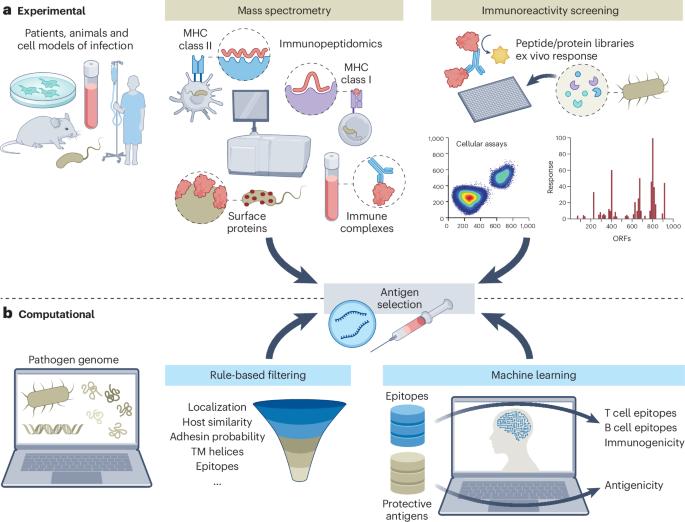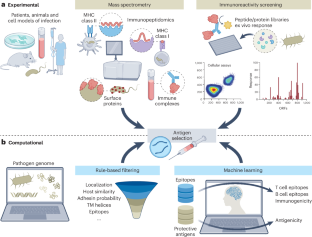细菌mRNA疫苗开发的挑战和机遇
IF 19.4
1区 生物学
Q1 MICROBIOLOGY
引用次数: 0
摘要
全球抗菌素耐药性激增对公共卫生构成严重威胁,强调迫切需要开发新的和更有效的细菌疫苗。自mRNA疫苗在COVID-19大流行期间取得成功以来,这一疫苗战略迅速发展,大多数努力都集中在癌症免疫治疗和靶向病毒性病原体上。最近,mRNA疫苗已进入细菌性疾病临床开发的早期阶段。然而,与病毒相比,细菌具有更大的生物复杂性,这给疫苗设计带来了额外的挑战,如抗原选择、免疫反应和mRNA结构设计。在这里,我们讨论了细菌mRNA疫苗开发的关键方面,从抗原选择到结构设计。我们还强调了目前的临床前前景,并讨论了针对细菌感染的mRNA疫苗的剩余转化挑战和未来潜力。本文章由计算机程序翻译,如有差异,请以英文原文为准。


Challenges and opportunities in mRNA vaccine development against bacteria
The global surge in antimicrobial resistance presents a critical threat to public health, emphasizing the urgent need for the development of new and more effective bacterial vaccines. Since the success of mRNA vaccines during the COVID-19 pandemic, this vaccine strategy has rapidly advanced, with most efforts focused on cancer immunotherapy and targeting viral pathogens. Recently, mRNA vaccines have entered the early phases of clinical development for bacterial diseases. However, bacteria present greater biological complexity compared with viruses, posing additional challenges for vaccine design, such as antigen selection, immune response and mRNA construct design. Here, we discuss critical aspects in the development of bacterial mRNA vaccines, from antigen selection to construct design. We also highlight the current preclinical landscape and discuss remaining translational challenges and future potential for mRNA vaccines against bacterial infections. This Review reflects on the major challenges in bacterial mRNA vaccine design, provides strategies for tailoring mRNA construct design to promote humoral or cellular immunity, and provides an overview of the translational landscape for mRNA vaccines.
求助全文
通过发布文献求助,成功后即可免费获取论文全文。
去求助
来源期刊

Nature Microbiology
Immunology and Microbiology-Microbiology
CiteScore
44.40
自引率
1.10%
发文量
226
期刊介绍:
Nature Microbiology aims to cover a comprehensive range of topics related to microorganisms. This includes:
Evolution: The journal is interested in exploring the evolutionary aspects of microorganisms. This may include research on their genetic diversity, adaptation, and speciation over time.
Physiology and cell biology: Nature Microbiology seeks to understand the functions and characteristics of microorganisms at the cellular and physiological levels. This may involve studying their metabolism, growth patterns, and cellular processes.
Interactions: The journal focuses on the interactions microorganisms have with each other, as well as their interactions with hosts or the environment. This encompasses investigations into microbial communities, symbiotic relationships, and microbial responses to different environments.
Societal significance: Nature Microbiology recognizes the societal impact of microorganisms and welcomes studies that explore their practical applications. This may include research on microbial diseases, biotechnology, or environmental remediation.
In summary, Nature Microbiology is interested in research related to the evolution, physiology and cell biology of microorganisms, their interactions, and their societal relevance.
 求助内容:
求助内容: 应助结果提醒方式:
应助结果提醒方式:


